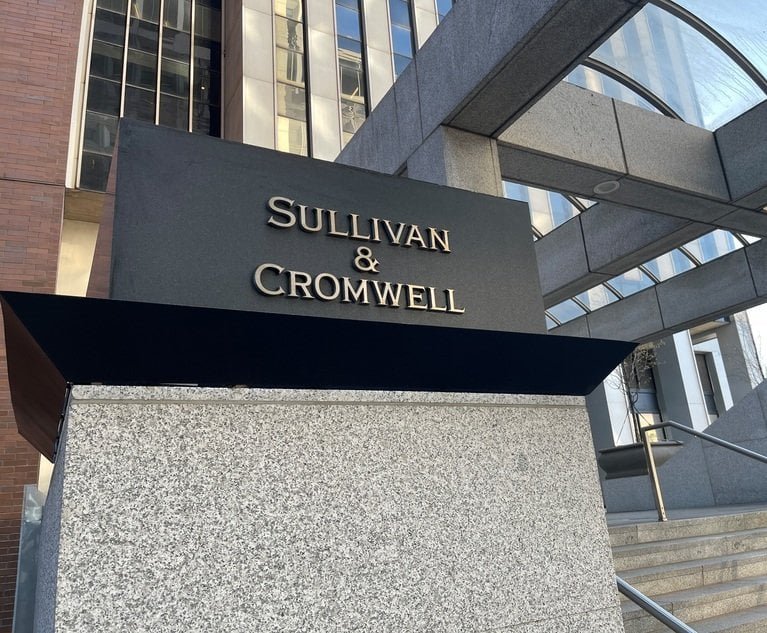A lawsuit has thrust New York-based law firm Sullivan & Cromwell (S&C) into the spotlight, alleging its complicity in the infamous FTX scandal. Led by named plaintiffs Edwin Garrison and others, the class action complaint, filed with the U.S. District Court, Southern District of Florida, paints a damning picture of collusion and negligence, implicating S&C in the multi-billion dollar fraud scheme perpetrated by FTX.
The lawsuit, spanning over 75 pages of legal documentation, meticulously lays out a web of allegations, suggesting that S&C played a pivotal role in facilitating the deceptive practices that led to the downfall of FTX. At the heart of the matter lies the assertion that S&C disregarded fundamental legal and ethical standards, effectively aiding and abetting the fraud that ensnared countless investors and precipitated the financial crisis at FTX.
Central to the plaintiffs’ claims is the notion that S&C was not merely a passive observer but an active participant in the misconduct perpetrated by FTX. Allegations range from counts of aiding and abetting fraud to violating RICO statutes, underscoring the plaintiffs’ determination to hold the law firm accountable for its alleged role in one of the most notorious financial debacles of the digital age.
Garrison and his co-litigants have meticulously documented instances of what they claim are illicit activities, citing significant financial transactions and internal communications that purportedly implicate S&C in FTX’s fraudulent schemes. Furthermore, the lawsuit highlights the substantial financial gains accrued by S&C through its association with FTX, raising questions about conflicts of interest and ethical lapses within the legal profession.
According to Garrison, S&C has reportedly profited handsomely from its involvement in the FTX debacle, with estimates suggesting that the law firm has earned over $180 million since assuming oversight of the FTX bankruptcy proceedings. These figures, representing approximately 10% of S&C’s total reported revenue for the year 2022, underscore the lucrative nature of the firm’s dealings with FTX.
Additional reports indicate that between November 2022 and November 2023, Sullivan & Cromwell invoiced upwards of $153 million for its services in the FTX bankruptcy case, with monthly revenues averaging nearly $11.8 million. Such staggering figures not only underscore the scale of S&C’s financial entanglement with FTX but also raise troubling questions about the extent of the law firm’s involvement in the unfolding crisis.
The narrative takes a more damning turn with accusations that former Sullivan & Cromwell attorney Ryne Miller, upon transitioning to FTX as general counsel, facilitated significant legal business between the two entities. The lawsuit alleges that Miller was aware of questionable financial transactions involving FTX customer funds, including an alleged “back door” leading to its controversial funds transfer to sister trading house Alameda Research.
The filing has reignited concerns about conflicts of interest and ethical breaches within the legal profession, prompting calls for greater transparency and accountability. These concerns have reverberated across the industry and have even reached the hallowed halls of the Senate, where calls for an independent investigation into the matter have been made.
A landmark development in the case occurred in January 2024 when the Third Circuit Court of Appeals mandated an investigation into FTX by an independent examiner, signaling a potential turning point in the legal battle. The creditors’ legal maneuver strategically requests jury trials on all triable claims, underscoring a purposeful march towards an intricate and likely high-stakes courtroom showdown.
Meanwhile, reports have emerged suggesting that Sullivan & Cromwell may soon secure a critical role overseeing Binance Holdings Ltd., a leading player in the cryptocurrency market. While these reports remain unconfirmed, they hint at the far-reaching implications of S&C’s legal entanglements and the potential impact on its reputation and standing within the legal community.
As the legal proceedings unfold and the spotlight intensifies on Sullivan & Cromwell, the industry watches with bated breath, awaiting the outcome of what promises to be a protracted and contentious legal battle. The implications of this lawsuit extend far beyond the confines of the courtroom, touching upon broader questions of corporate accountability, ethical conduct, and the role of legal advisers in shaping the future of finance.









